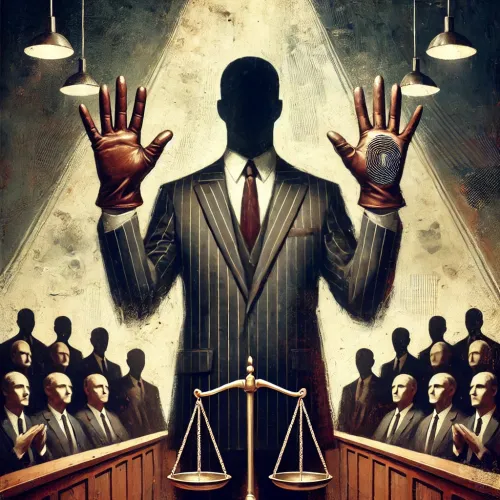The jury's role as fact-finders is a cornerstone of the judicial process, entrusting ordinary citizens with the responsibility to evaluate evidence, assess witness credibility, and determine the facts of a case. This function is integral to the concept of jury nullification, where jurors, based on their fact-finding, may choose to acquit a defendant despite clear evidence of legal guilt, guided by their conscience and perception of justice.
Historical Context
Historically, juries have not only determined facts but also exercised judgment over the application and fairness of laws. In the 1670 trial of William Penn, jurors refused to convict Penn for unlawful assembly, despite clear evidence and judicial pressure, asserting their right to deliver a verdict based on conscience. Similarly, in the 1735 trial of John Peter Zenger, jurors acquitted Zenger of libel against the colonial governor, emphasizing the importance of free expression and the jury's role in protecting individual rights. These cases underscore the historical significance of juror autonomy as a safeguard against oppressive laws and governmental overreach.
Legal Framework
In modern legal systems, juries are typically instructed to act solely as finders of fact, leaving the interpretation of law to judges. This delineation aims to maintain legal consistency and uphold the rule of law. However, the power of juries to nullify—choosing not to apply the law to the facts in a particular case—remains a contentious issue. Advocates argue that it serves as a vital check against unjust laws and governmental overreach, while critics contend that it undermines legal predictability and can lead to arbitrary outcomes.
Jury Nullification and Fact-Finding
Jury nullification occurs when jurors, after evaluating the facts, conclude that a conviction would be unjust, even if the defendant has technically violated the law. This decision reflects the jury's assessment of the law's fairness and its application to the specific circumstances of the case. By acting as the "conscience of the community," jurors can mitigate the rigidity of legal statutes, ensuring that justice aligns with societal values.
Ethical and Practical Implications
The practice of jury nullification raises several ethical and practical considerations:
- Democratic Safeguard: It empowers citizens to prevent the enforcement of laws perceived as unjust, serving as a democratic check on legislative and judicial authority.
- Legal Uncertainty: Frequent nullification can lead to unpredictability in legal outcomes, potentially undermining the consistency of the legal system.
- Potential for Bias: Jurors' personal beliefs and prejudices may influence their decisions, leading to unequal application of justice.
Judicial Perspectives
Courts have exhibited caution in addressing juror autonomy, particularly concerning jury nullification. Judges typically instruct jurors to adhere strictly to the law as presented, emphasizing their role as fact-finders rather than lawmakers. In some instances, courts have removed jurors who openly express intent to nullify, viewing such actions as a deviation from their legal duties. For example, in United States v. Thomas (1997), the Second Circuit Court of Appeals upheld the dismissal of a juror who was suspected of intending to nullify the law.
Contemporary Relevance
In modern times, the principle of autonomy in jury decision-making continues to evoke debate. Advocacy groups, such as the Fully Informed Jury Association (FIJA), campaign for jurors to be informed of their rights to judge both the facts and the justice of the law. They argue that fully informed jurors are essential to a just legal system, capable of mitigating the effects of unjust laws. Conversely, critics caution that promoting jury nullification could undermine the rule of law and lead to verdicts based on personal prejudices rather than objective legal criteria.
The jury's role as fact-finders is fundamental to the administration of justice, ensuring that verdicts are grounded in an impartial assessment of evidence. However, this role intersects with the practice of jury nullification, where jurors' evaluations of facts lead them to challenge the application of the law. This dynamic underscores the complex balance between legal consistency and moral judgment within the jury system. Understanding this balance is essential for appreciating the nuanced function of juries in reflecting community standards and upholding justice.



